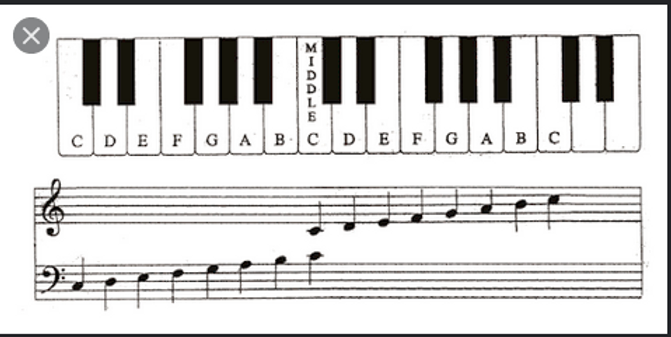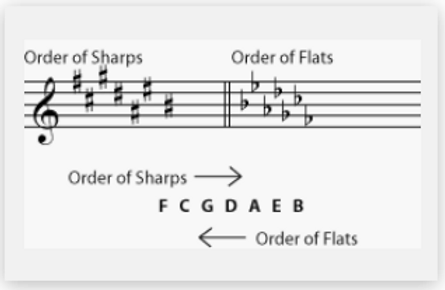Explore the Michelle Ostrove Blog
The formation of clear and distinct sounds, clarity in playing or singing successive notes is key. Articulation, diction, enunciation are different ways to describe how you sing. It is the way in which we enunciate our words as we sing them. If you add inflection, accent, intonation this will add texture to your singing voice; how you sing your vowels sounds and close out your words, will create a very unique vocal sound. When you hear Rhianna sing, listen to…
Read MoreIt takes time to really learn how to read notes and understand rhythms, hopefully you have read the first two blogs about how to read music and deduce some important features of the music. When you look at piano music, you probably noticed that it is split into two parts (as you can see in the picture attached). You have a staff at the top (treble clef staff, blog – How To Read Music Part 1) and a staff at…
Read MoreSinging or playing piano with a specific style depends on a few things. How do you interpret the lyrics for a song? What do they mean to you? What feelings do the words awaken in you, and how can you evoke those feeling to the audience? Where does it make sense to increase or decrease volume? Also, the rhythmic pattern you choose to use will create a specific feel and style to the song. Your stylistic choice will determine your…
Read MoreA sharp symbol (#) looks like a pound sign or a hash tag, and it raises the pitch (note) a half step. The parallel lines should be slanted a little. Let’s say you are playing middle C (white key) and needed to play C#, you would play the black key to the right of the white key. A sharp note is an alteration of the natural note. It raises the note a half step higher (or semitone higher) than the…
Read MoreTHE VIDEO ATTACHED IS A CBS SEGMENT FILMED ABOUT ME AND A NEW BUSINESS I STARTED IN LOS ANGELES (CHATSWORTH). The attached video just aired on CBS, the TV Show is called Destination LA and they filmed a segment about me and a business I started in Los Angeles (Chatsworth). The new school is called Rock Cellar Music School created for artist development. We have two very talented artists teaching songwriting: Lois Blausch, 3X Grammy Nominated songwriter with her own…
Read MoreA flat symbol (b) looks like a lower case B and it lowers the pitch (note) a half step. Let’s say you are playing D (white key) and needed to play Db (D flat), you would play the black key to the left of the white key. A flat note is an alteration of the natural note. It lowers the note a half step (or semitone lower) than the natural note that appears on the line or space of the…
Read MoreOne of the most important qualities a singer or pianist can possess is confidence! The more you perform the more your confidence will grow. This is a key issue for your development if you want to be a performing artist. Being confident is nothing more than believing in yourself, confidence comes from within. You need to push through the self-doubt and replace it with positive and confident thoughts. To build confidence as a singer it is important to warm up…
Read MoreWhat makes one voice sound different from another? If you ever sang in a school or church choir, you know there are different categories or types singers (bass, tenor, alto and soprano). I will discuss three ways to classify six of the voice types, even though the Fach System (a German voice classification) has 29 different categories, which are mostly used for opera and classical styles of singing. We will discuss the 6 that pertain to pop, country, rock, jazz,…
Read MoreTo have a great voice you have to pay your dues and work hard. There is a technique called “vocal fry”, which is a healthy husk (growl) or raspy sound you can produce in your voice. The vocal fry is the lowest register of your voice. It is considered a vocal onset, which we discussed in the previous blog “How To Put A Spark In Your Singing Voice”. How to create that sound takes time and needs to be done…
Read MoreLearning to read music, sight reading, is important for any good piano player and singer. To be a professional as a vocalist or musician, it is almost a must to read music, but there are a some who do not. Developing a good ear is crucial for creativity and a lot of fun too! Personally, I think it’s important to develop both, playing by ear and reading music. There are very creative people who play an instrument completely by ear…
Read More








